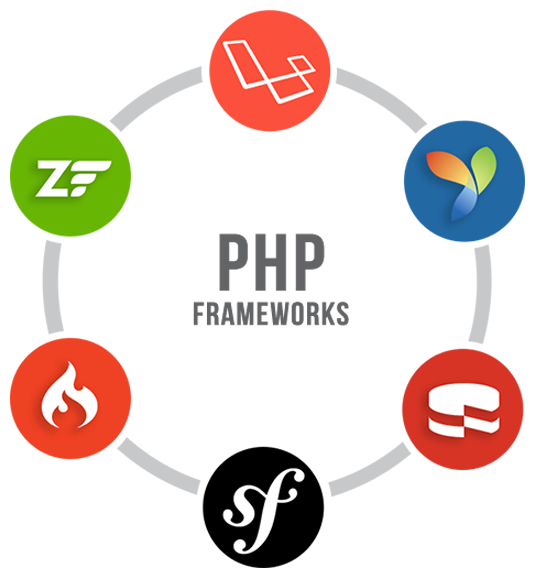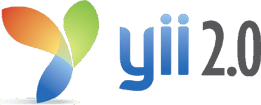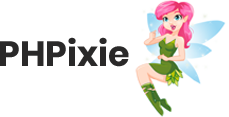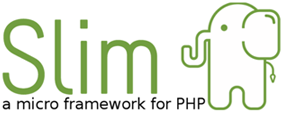PHP frameworks make agile development possible. If you are starting a new PHP project you should definitely consider picking a modern PHP framework to provide well-organized, reusable and maintainable code. They make it easier to grow your application over time and scale.
Most modern PHP frameworks follow the MVC (Model-View-Controller) pattern that ensures the separation of presentation and logic and promote modern web development practices.
Developing an app or a website from scratch involves a lot of work. In many cases, you’ll need to recreate functions that have already been made thousands of times, which is about as efficient as reinventing the wheel. Software frameworks can help you circumvent this problem, by providing you with a foundation you can build upon.
In this article, we’re going to help you find the best PHP framework for your development work, by introducing you to eight of the top options.
We’ll talk about each framework’s pros and cons, its technical specifications, and more. Let’s get to it!


Laravel is a relatively new PHP framework but un-arguably the most popular PHP Framework out there to date. Learning Laravel is easy since each release is fully documented. They also provide many screencasts, tutorials, and blog updates.
Laravel has many features that make rapid application development possible. The Artisan command-line interface provides a number of helpful commands while developing the application. Laravel has a powerful templating engine too, which enables common tasks such as authentication, caching, sessions, RESTful routing, and queuing easier for developers.
It has a huge ecosystem with an instant hosting and deployment platform. Laravel can be easily developed with the pre-packaged Homestead bundle with Vagrant.

Symfony is another popular PHP framework that empowers developers with a set of reusable PHP components and code. When it comes to developing large-scale enterprise projects, Symfony makes a perfect choice among PHP frameworks. The components of the Symfony framework are used by many content management systems like Drupal, PHPBB, PIWIk, OROCRM and even the popular Laravel itself uses it.
Symfony’s ecosystem is huge and is supported by an active community of developers.

Zend packs a range of features such as a user-friendly drag and drop editor, cryptographic coding tools, a connected Database Wizard, and instant online debugging tools. Its editor supports front-end technologies like HTML, CSS and JavaScript as well. The scalable framework is ideal for complex websites as it offers a myriad of configuration options. However, it is one of the most difficult to learn.

CodeIgniter is one of the oldest frameworks but is simple and powerful. It can easily be installed and requires minimal user configuration. It works perfectly on almost all shared and dedicated hosting platforms. CodeIgniter isn’t entirely based on the MVC framework. Models and Views are optional, but Controller classes are a must. Another strength of CodeIgniter is speed. It runs faster with database tasks in comparison to other frameworks. CodeIgniter is well documented and a good framework to start with for PHP beginners.

FuelPHP is a modular, extendable, and flexible PHP framework. The full-stack framework supports the MVC pattern as well as its evolved version Hierarchical Model-View-Controller (HMVC) at the architecture level. It addresses security concerns by providing features such as input and URI filtering and output encoding. It comes with its own authentication framework, with many other sophisticated features and backed with good documentation. FuelPHP is suitable for delivering end-to-end web solutions of diverse sizes and complexities.

CakePHP is already a decade old, but it’s still among the most popular PHP frameworks. CakePHP brings speed, reliability, and security. It has great support from the community of developers to keep up with the latest technology trends. It’s a modern framework and is properly suited for commercial web applications. Form validation, SQL injection prevention, good documentation, cross-site request forgery (CSRF) protection, cross-site scripting (XSS) prevention are unbeatable features of CakePHP.

Phalcon differs comparatively with other PHP frameworks as it is based on C and C++ coding style. As Phalcon is delivered as a C-extension, its architecture is optimized at low levels, which significantly reduces the overhead typical of MVC-based apps. Phalcon is loaded with exceptional features such as asset management, universal autoloader, translation, caching, security and much more. It is an easy-to-use framework and very well documented. It’s definitely worth a try.

Yii is among the oldest PHP frameworks and has come up with its latest version Yii 2 to get a much-needed popularity boost. Yii 2 is purely object-oriented and is based on the DRY (Don’t Repeat Yourself) coding concept. One Yii 2 strong feature is the lazy loading technique, which makes it faster compared to other frameworks. It excels for large-scale website development because it can be integrated with AJAX and JQuery features. Additionally, it has a powerful class code generator called Gii that facilitates object-oriented programming and rapid prototyping to provide a web-based interface that allows you to interactively generate the code you need.

PHPixie is a newer framework introduced in 2012 with the goal of creating a high-performance framework for read-only websites. PHPixie implements the HMVC design pattern similar to FuelPHP and is built by using independent components that can be used without the framework itself. PHPixie components are 100% unit tested and just require minimum dependencies. It features standard ORM (object-relational mapping), caching, input validation, authentication and authorization capabilities. PHPixie also allows you to use the HAML markup language, enables schema migration, and has a sophisticated routing system.

Slim is a light-weight micro framework that is typically used for developing RESTful APIs and services. Despite being minimalistic in design, Slim is packed with rich features such as client-side HTTP caching, session and cookie routing, URL routing and support for flash messages across HTTP requests. It is excellent for small web applications where a full-stack PHP framework is not really needed.
Each framework has pros and cons and every developer has different coding styles and preferences. We hope you find a framework on our list that is valuable to you and your team.